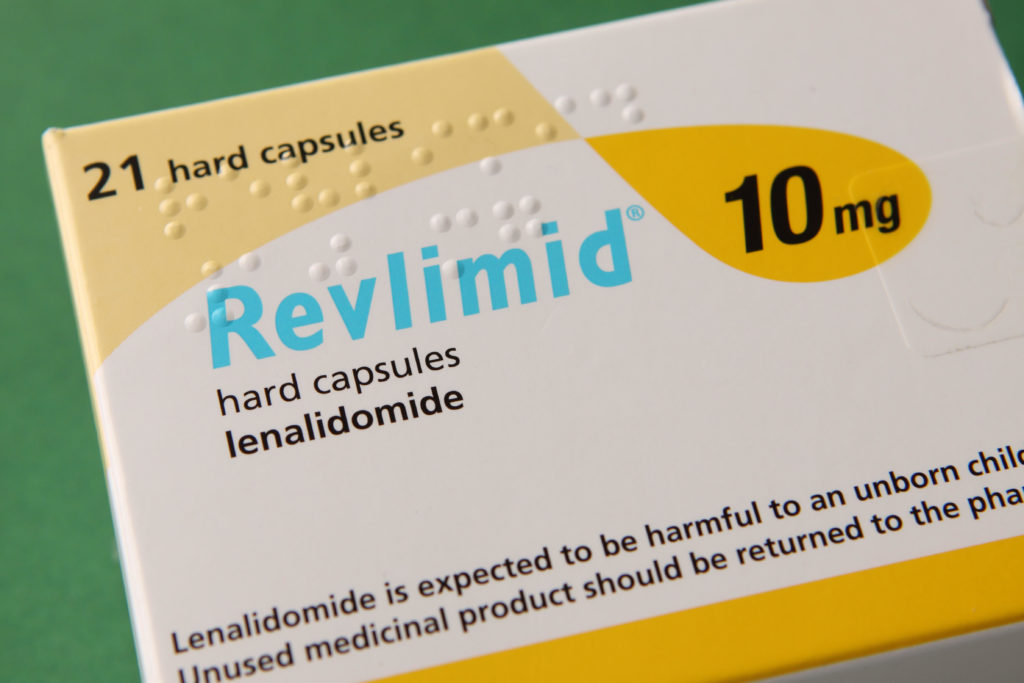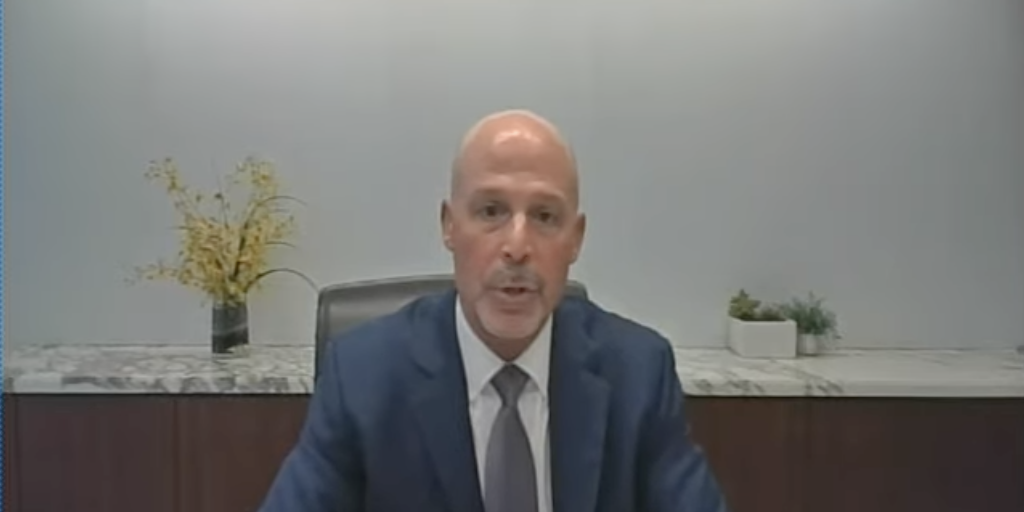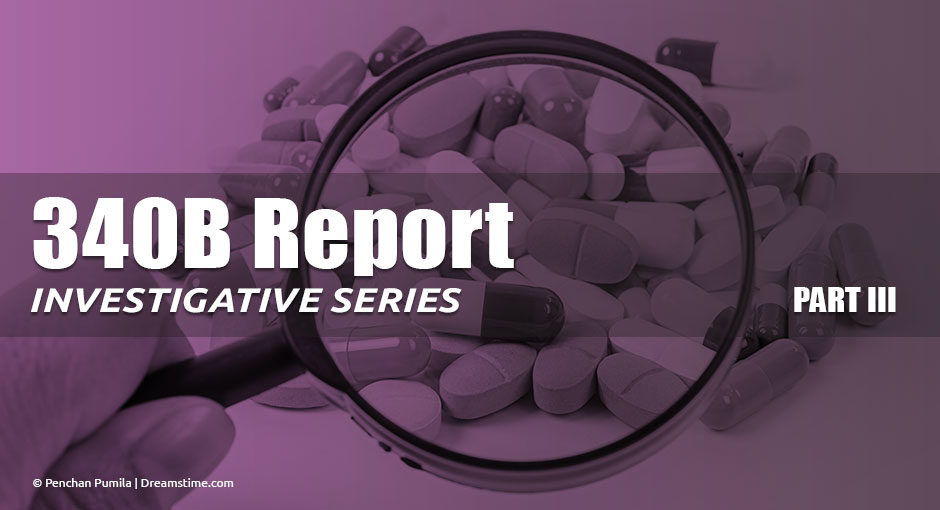Part 3 of 6—The Path From Thalidomide, to Revlimid, to a 340B Whistleblower Lawsuit
The myeloma drugs Revlimid and Pomalyst are analogues of Thalomid, aka thalidomide—a drug that still haunts those who remember the late 1950s and early 1960s. Marketed mainly in Europe as an over the counter sedative and morning sickness medicine for pregnant women, thalidomide deformed their babies’ limbs or caused stillbirth. “Thalidomide changed our relationship with new medicines forever,” the U.K.’s national Science Museum says. “It resulted in tighter drug testing and reporting of side-effects.” In the U.S., Congress responded to the thalidomide tragedy in 1962 with legislation requiring drugs for the first time to be proven safe and effective before they could be approved and marketed.
Years later, researchers brought thalidomide back from medical exile. Studies found it was a treatment for multiple myeloma and other blood cancers. Revlimid and Pomalyst were developed to minimize thalidomide’s side effects.
In 1998, the U.S. Food and Drug Administration (FDA) gave Celgene approval to market thalidomide in the U.S. to treat multiple myeloma, with a risk evaluation and mitigation strategy (REMS) to prevent fetal exposure. Celgene obtained FDA approval to market Revlimid in 2005 and Pomalyst in 2013, also with REMS.
Revlimid is unquestionably an effective myeloma treatment. For example, a literature review and meta-analysis of clinical studies of myeloma treatments, to see if one drug regimen was superior to others, was published in JAMA Oncology in 2018. It found that Revlimid maintenance treatment “appears to be the best treatment option,” in terms of the length of time a patient lives and overall survival.

As the FDA explains, a REMS is a drug safety program the FDA can require for medications with serious safety concerns to help ensure the medication’s benefits outweigh its risks. The FDA says REMS are designed to reinforce medication use behaviors and actions that support the safe use of that medication. Currently, only 61 products sold in the United States require a REMS.
Revlimid by far generates the most revenue of Celgene’s three myeloma drugs. Bristol Myers Squibb (BMS), which bought Celgene in 2019, reported $26.5 billion in total U.S. revenues in 2020, including $8.2 billion from Revlimid and $2.1 billion from Pomalyst. (BMS did not break out Thalomid revenues for 2020 in its latest annual financial report to the SEC. For fiscal year 2019, it reported less than $5 million in revenues from Thalomid.)
Limited Distribution Networks Closed in 2013
In January 2015, Celgene notified 340B covered entities on the U.S. Health Resources and Services Administration’s (HRSA) Office of Pharmacy Affairs (OPA) website that, in 2013, it closed its limited distribution networks for the three myeloma drugs and did not expect to add any others. The networks had fewer than 250 providers.
Celgene said it adopted these small networks of specialty pharmacies, hospitals, and clinics authorized to buy and dispense the three drugs to satisfy its FDA REMS obligations. It said its selection criteria “is and has been based on factors unrelated to a pharmacy’s 340B status,” and that “340B covered entities are proportionately represented” in all three networks.
It said patients of providers not included in the networks—but not excluded providers themselves—can buy the drugs from one of the specialty pharmacies in the networks. The company said it takes its obligation to comply with the 340B statute seriously, and “reviewed the composition and selection criteria for the networks with HRSA and are posting this notice at the Agency’s request, in order to ensure that our distribution procedures are transparent to all 340B stakeholders.”
Typically, when a drug manufacturer limits distribution of a product and posts such a notice on HRSA’s website, it includes instructions on how 340B covered entities can buy the product at its 340B ceiling price. 340B covered entities, for example, can buy and dispense Adempas (Bayer) and Tracleer (Actelion), oral outpatient drugs that pose fetal toxicity risks and have REMS.
“Celgene’s notice does not even mention 340B pricing,” the former Celgene vice president pointed out in the 2018 False Claims Act whistleblower complaint against the company.
340B Entities Allegedly Were Targeted
The whistleblower said in the complaint that Celgene’s 2015 limited distribution notice on OPA’s website “falsely claimed that 340B status was not considered” in Celgene’s selection criteria for its limited distribution networks, and that 340B covered entities were proportionately represented. “In fact, entities were specifically excluded because of their 340B status” and “were not proportionately represented,” the former Celgene executive said.
“Celgene was improperly excluding 340B covered entities from its LDN not because it would ‘weaken’ the REMS, but rather, for the specific purpose of avoiding providing its most profitable drugs at a capped ceiling price,” the whistleblower said. Celgene even excluded from its distribution networks several “stellar healthcare providers” conducting clinical trials for Celgene on “these exact same myeloma drugs,” the former executive said.
All three Celgene myeloma drugs have orphan designations, which means that they are intended to treat rare diseases or conditions. In 2010, the Affordable Care Act added three types of rural hospitals and free-standing cancer hospitals to the 340B program, but denied them 340B pricing on orphan drugs, which were a growing source of drug industry revenues. Bipartisan bills to give the hospitals access to 340B pricing when they use orphan drugs for common conditions have been introduced in the U.S. House since 2016, but none have passed.
The whistleblower told the court in the complaint that Celgene closed its limited distribution networks for the three drugs in 2013 not for patient safety reasons, but rather “to prevent covered entities to which the orphan drug exception did not apply from obtaining myeloma drugs at the ceiling price.”
“Celgene either does not have entities that are exempt from the orphan drug exception in its LDN or it falsely excludes eligible covered entities from receiving the ceiling price based on the orphan drug exception,” the whistleblower alleged.
Concerns About HRSA Audits
The whistleblower alleged in the complaint there was a meeting in 2016 during which then-CEO Mark Alles, Celgene’s general counsel, and other top company executives had an animated discussion about their concerns that HRSA “could audit Celgene’s sales records for the myeloma drugs.”
“The executives all agreed that an audit of the myeloma drug sales records would be a catastrophic financial event for Celgene,” the former company executive claimed.
HRSA, in fact, audited Celgene for 340B program compliance sometime between October 2015 and September 2016. Its audit had no adverse findings. The whistleblower told the court in the complaint that Celgene misled HRSA during the auditing process “by representing that it was honoring its 340B pricing obligations when in fact it was making substantial efforts to avoid those obligations.” We asked BMS about these allegations and the company emphasized that “HRSA’s audit had no adverse findings and that HRSA has not to date communicated any required changes in these practices to BMS.” Here is their full statement in response to a number of questions we provided to the company.

“How Long Have You Been Getting Away With The Excuse”
According to the complaint, during the 2016 meeting at which Alles and other top executives allegedly expressed concerns about the potentially catastrophic consequences of a HRSA audit, the whistleblower asked the executives, “how long have you been getting away with the excuse of not opening up the network based on an FDA mandated REMS and have not had to accept 340B pricing or offered qualified customers the same ability to be part of the network?”
The whistleblower said the other attendees “collectively responded that Celgene was told that they were protected by the FDA’s mandated REMS and it was fully understood by HRSA that Celgene was fully compliant with the 340B program.”
The whistleblower told the court in the complaint that, based on “experience dealing with REMS and HRSA, as well as the qualifications of the institutions that were being denied access to the applicable 340B drug pricing, [the whistleblower] did not believe it was accurate or proper to claim that Celgene was compliant with the 340B program.”
According to the complaint, after the meeting, the whistleblower met individually with Celgene’s executive director of pricing and contracts “to garner a better understanding of the Celgene program and to see if he could explain why Celgene was not exposed to billions of dollars in penalties and repayment to the federal government based on the way they were pricing the myeloma drugs.”
That executive reiterated to the whistleblower “that he believed that the ‘closed’ network protected and permitted Celgene to exclude otherwise eligible providers from access to the 340B ceiling price,” the whistleblower told the court in the complaint.
Relying on a “Loop-hole”
In addition, the executive—the whistleblower’s direct superior—“explained that even among providers in the LDN, Celgene was not required to adhere to the 340B ceiling price requirement for many of them because of a ‘loop-hole’ based on the fact that the myeloma drugs were categorized as rare orphan drugs,” the whistleblower said in the complaint.
The whistleblower said the executive director of pricing and contracts confided “his concern about Celgene’s approach and they discussed developing a contingency strategy, in the event that HRSA or one of its audits uncovered the details of Celgene’s improper use of the LDN and orphan drug exception,” the whistleblower said.
According to the complaint, the whistleblower was suspicious because the networks for the myeloma drugs were previously open, and Celgene closed them just before “a campaign to raise prices on the drugs several times each year.”
The whistleblower did not support the price increases and expressed concerns to then Celgene CEO Alles and the executive management team during a pricing meeting, according to the complaint.
The price increase was implemented over the whistleblower’s objections, according to the complaint. The whistleblower told the court that Alles said, “Why would you be afraid to take an increase on our products? What could be the worst thing that happens….a tweet here or there and bad press for a bit, but let’s face it, Mylan took their huge price increase, Valeant has huge increases and Turing, however none of those companies have yet to reduce their prices despite the bad press.”
Wednesday in Part 4: How do BMS/Celgene Revlimid policies affect 340B hospitals and patient care?


